FEBS Summer Fellowships insights: to Paris, Munich and Copenhagen in 2020

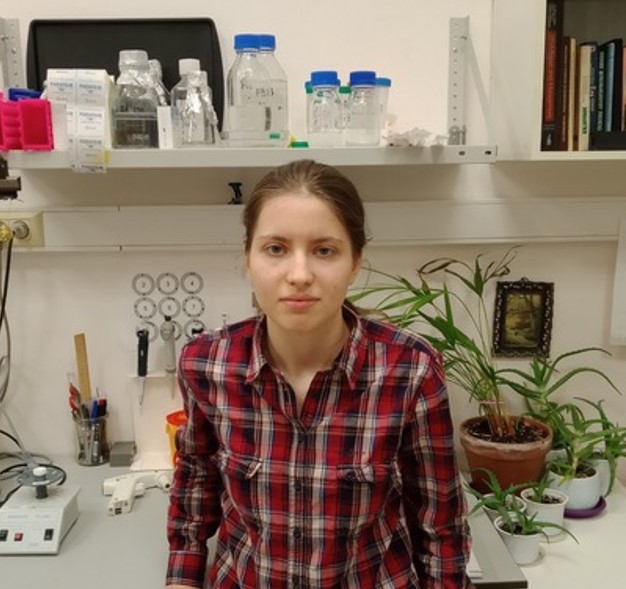 Eugeniia Tiukacheva is a second-year MSc student working at the Institute of Gene Biology, Russian Academy of Sciences, Moscow, Russia, on the role of the topology of the 4q35 genomic locus in Facioscapulohumeral dystrophy (FSHD), an autosomal dominant disorder. Her 2020 FEBS Summer Fellowship was carried out in the group of Dr Yegor Vassetzky, Paris, France. Photo: Evgeniia in the lab in Paris.
Eugeniia Tiukacheva is a second-year MSc student working at the Institute of Gene Biology, Russian Academy of Sciences, Moscow, Russia, on the role of the topology of the 4q35 genomic locus in Facioscapulohumeral dystrophy (FSHD), an autosomal dominant disorder. Her 2020 FEBS Summer Fellowship was carried out in the group of Dr Yegor Vassetzky, Paris, France. Photo: Evgeniia in the lab in Paris.
Why did you apply for a FEBS Summer Fellowship?
My supervisor suggested I apply, because our project seemed promising and among my colleagues there were already those who had taken part in the FEBS Summer Fellowships program, and gained a lot of experience and impressive results.
What was it like settling in to your new lab home?
At first, I felt a little nervous, as this was my first experience of working outside of my hometown. But the host lab had several students from my home country who helped me to quickly get involved and introduced me to others. Before the trip, I was afraid that it would be difficult for me to communicate with my colleagues because I know French poorly, but it turned out that since there are people from all over the world in the host laboratory, we all spoke English and understood each other perfectly.
What was the main benefit for your research?
During the 2.5 months I spent in Paris, I produced a cell line with a modified genome topology, which I can use in my projects in my home laboratory and which is the basis of my Master's thesis. I am convinced that the experience and knowledge I gained during this FEBS Summer Fellowship will help me to improve myself as a scientist.
How did the coronavirus pandemic affect your placement?
Due to the pandemic, my arrival was postponed and we had to change the plan of experiments in order to have time to do the most necessary things in the new time frame. During my stay, the second lockdown in France began, so there were restrictions on campus aimed at minimizing contact between people: schedules for visiting different rooms, mandatory wearing of a mask outside of your room, etc.
Did you experience any particular challenges aside from the pandemic?
For the first several days, it was challenging for me to readjust myself for the work in a new lab and life in a new place (once I got lost in the corridors of the lab and on my first trip in the Paris Metro I missed my stop, because there are differences in opening of the doors of the train: in Moscow they open automatically, but in Paris by hand). However, my colleagues helped me to overcome these issues.
What else did you learn or enjoy?
The head of the host laboratory knows a lot about the history of Paris and he gave us a tour of some interesting places. This was at the beginning of my trip and helped to overcome the barrier between me and the new environment. Also, due to the fact that it is easy to get from Paris by train to Brussels, I was able to visit my relatives in Belgium on one of the weekends, whom I had not seen for many years. And one funny thing, on the campus where I lived, there was a gorgeous cat that recognized me every time we met and gave me a positive mood in the mornings.
What are your next aims?
I plan to enrol for a PhD and hope that the results I received during the FEBS Summer Fellowship will help me in the implementation of several projects in the Moscow laboratory.
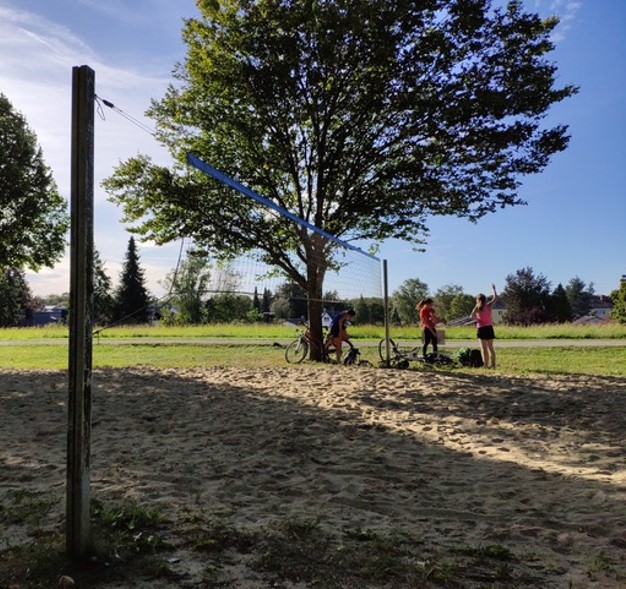 Daniel Zucha is a second-year MSc student working at the Institute of Biotechnology in the Czech Academy of Sciences, Prague, Czech Republic, in gene expression at single-cell resolution with respect to acute brain injury. His 2020 FEBS Summer Fellowship was carried out in the group of Dr Boyan Bonev at the Helmholtz Zentrum in Munich, Germany.
Daniel Zucha is a second-year MSc student working at the Institute of Biotechnology in the Czech Academy of Sciences, Prague, Czech Republic, in gene expression at single-cell resolution with respect to acute brain injury. His 2020 FEBS Summer Fellowship was carried out in the group of Dr Boyan Bonev at the Helmholtz Zentrum in Munich, Germany.
Photo: research-group volleyball in Munich.
Why did you apply for a FEBS Summer Fellowship?
The most interesting findings in science are often built on collaborations where people from different backgrounds meet and discuss their views. Nearing the end of my Master’s studies, I was curious to see how similar questions can be tackled from a new perspective. After a brief search, I was convinced that a FEBS Summer Fellowship was the right choice for me, as it provided me with the versatility to plan the place and time of stay.
What was it like settling in to your new lab home/city?
Both planning but also luck enabled me to arrive at the destination for my Fellowship – Munich – safely. Although the unordinary last year dictated a ‘new routine’ to many of us, I found arriving as a new person in my host lab made things seem more ‘normal’ – we are well used in science to exploring something new, whether it is a person or project. And I can certainly say that everyone I met, whether in the lab or at my accommodation, was absolutely welcoming and helpful. I am very grateful to all of them.
Did you achieve your research aims?
I had successfully optimized sequencing protocols before, but I was curious to see whether I could meet goals again with different material, a new laboratory environment and much shorter period of time to succeed. Despite a few hiccups, I managed to meet the aims of my stay, even a little bit ahead of time with a little extra work done. This would not have been possible without the essential role my colleagues and supervisor played – being professionals and friends alike. All of this not only broadened my view on how the beauty of the developing brain can be explored, but also how impactful it is to be part of team.
How did the coronavirus pandemic affect your placement?
Arriving one month later did not affect my situation much; actually, it had favourable effects. Lockdown spring had slowed many things down and thus I was more ready to meet goals in my home lab and be prepared for what the Fellowship had to offer. Moreover, the weather had improved, which made the morning bike rides even more enjoyable. Apart from the hygiene restrictions in place, I was not really aware of the pandemic going on.
Tell us about a favourite moment
In my opinion, internships/fellowships are spectacular in concentrating many experiences into a short period of time, which are ultimately digested later, often when the fellowship is over. Said plainly, the Summer Fellowship was a great scientific summer. During my stay in Munich, I found excellent minds, working passionately as a team. However, there is more to the story. We also enjoyed our time by going out playing beach volleyball, getting a beer in the local beer garden, or just staying late in the lab discussing what laboratory equipment we would potentially turn ourselves into. Those two months passed so quickly that when I look back, it can feel in its entirety like a moment.
Would you like to continue in science?
Most certainly I would. Science is a great playfield where all of us can marvel at nature’s mysteries or on the clever foundations this world is built upon, and in my eyes there is no better universe to explore than that inside our skulls. As of now, I am starting to work on a few projects revolving about the brain’s defensive stance after acute injury, and hope we can eventually bring in medical or bioinformatical expertise to the interpretation. Wish us luck!
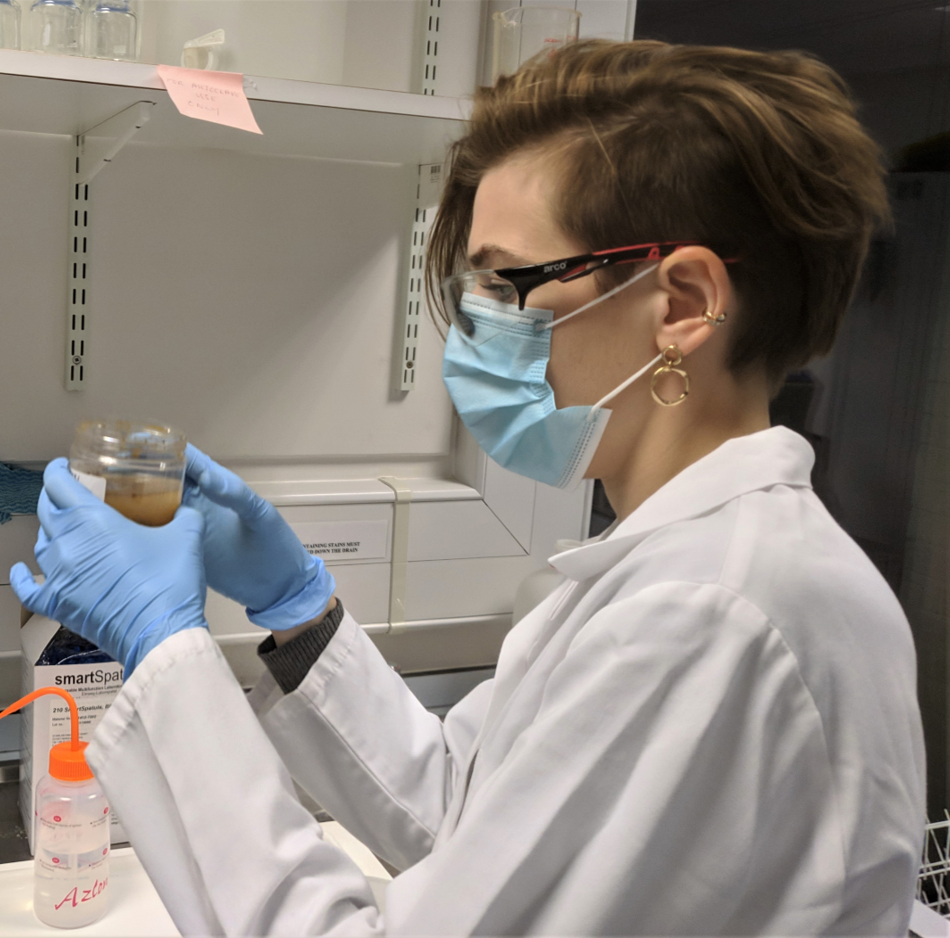 Alexandra Morton-Hayward is a pre-doctoral student working at the Section for GeoGenetics of the GLOBE Institute, University of Copenhagen, Denmark, on the molecular taphonomy and differential preservation of neural tissue in the archaeological record. Her 2020 FEBS Summer Fellowship, when she was based at University College London, UK, was carried out in the group of Professor Matthew Collins at the GLOBE Institute, Copenhagen, Denmark. Photo: Alexandra in the lab, sampling archaeological brains.
Alexandra Morton-Hayward is a pre-doctoral student working at the Section for GeoGenetics of the GLOBE Institute, University of Copenhagen, Denmark, on the molecular taphonomy and differential preservation of neural tissue in the archaeological record. Her 2020 FEBS Summer Fellowship, when she was based at University College London, UK, was carried out in the group of Professor Matthew Collins at the GLOBE Institute, Copenhagen, Denmark. Photo: Alexandra in the lab, sampling archaeological brains.
Why did you apply for a FEBS Summer Fellowship?
As one of the fastest tissues to decompose postmortem, preserved brains are far more common than they should be in the archaeological record: in fact, they are one of the most frequently preserved ancient soft tissues. More than 1500 brains have been excavated in the last 400 years – yet almost no biochemical work has been done to investigate why brains persist when other organs perish, nor what we might learn from their constituent biomolecules. Despite the invaluable support of my home institution (University College London, UK), to address these intriguing questions it became clear that I would need to look further afield for specialist guidance. Ultimately, the design of a robust experimental approach for my project grew out of the world-leading expertise in palaeoproteomics of the Collins group at the GLOBE Institute (University of Copenhagen). Having assembled a team of collaborators excited about a radical rethink in terms of the ubiquity of preserved brain tissue, I leapt at the chance a FEBS Summer Fellowship offered to conduct my laboratory work under their invaluable tutelage.
What was it like settling into your new lab home/city?
Arriving in Copenhagen was an experience unlike any other: it is hard to imagine finding yourself in a place you have never been, but immediately feeling you have always belonged there. My new colleagues quickly became new friends; my new lab, my new community; and my new city, my new home.
What was the main benefit for your research?
My upcoming doctoral study is the ideal opportunity to apply the breadth of my academic experience in the passionate pursuit of a topic I find compelling – and I am thrilled to be beginning this next chapter in my research career by building on the solid foundation established during my FEBS Summer Fellowship. As l continue to explore the unmined archaeological potential of preserved brain tissue, my research benefits not only from the theoretical knowledge and practical skills I have acquired, but its direction is constantly informed by the pilot data I have generated: for example, the discovery of novel strategies for the recovery of ultralow concentrations of ancient biomolecules, and refining these protocols to minimize destructive sampling of precious archaeological materials.
Did you experience any particular difficulties?
As a disabled student, settling in another country presented its own challenges. Securing essential medical provisions (including access to medication and specialist care), particularly as a British student during the UK’s regrettable exit from the EU, was at times a source of great anxiety – but I feel so lucky to have received fantastic support from both my home and host institutions. I am very fortunate to have had colleagues genuinely concerned not only with my training and career progression, but also with my happiness and wellbeing.
What else did you enjoy?
I am so grateful for the kind, patient and unwavering assistance of my colleagues at the GLOBE Institute, whose help was so freely offered and frequently vital. Most especially, I will always be indebted to my host PI: his indefatigable optimism, irrepressible enthusiasm and boundless energy have all been as exasperating as they have been essential to the success of my FEBS Summer Fellowship!
Would you like to continue in science?
Absolutely! Having spent an extraordinary few months with the Section for EvoGenomics at the GLOBE Institute, I’m delighted to be taking the next steps in my academic career as a Research Assistant with the institute's Section for GeoGenetics, before beginning my PhD later this year. My new role is a fantastic opportunity to advance my studies still further, and continue to explore the preservation of a suite of intriguing biomolecules – proteins, lipids, aDNA and metabolites – as far back in time as we dare to peer.
Top image of post: by Ted Erski from Pixabay
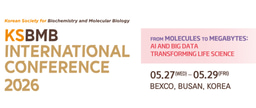
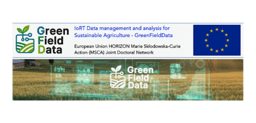

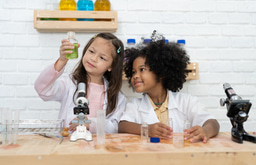
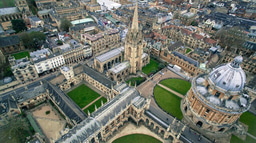
Join the FEBS Network today
Joining the FEBS Network’s molecular life sciences community enables you to access special content on the site, present your profile, 'follow' contributors, 'comment' on and 'like' content, post your own content, and set up a tailored email digest for updates.